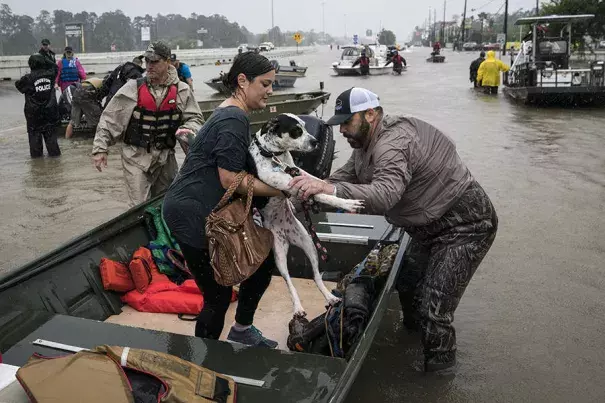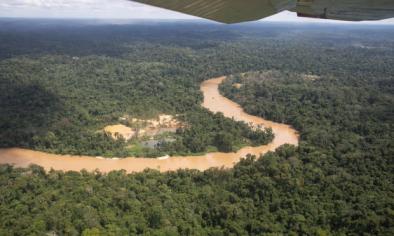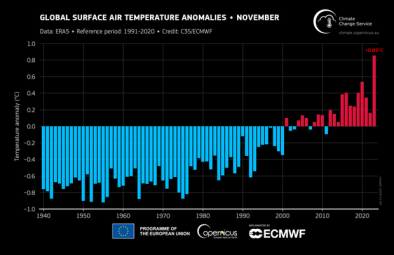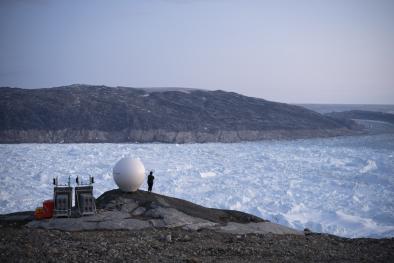Earth's Hottest Decade on Record Marked by Extreme Storms, Deadly Wildfires

Signals Summary: Climate change is worsening extreme weather in a variety of ways, including making hurricanes more intense, extreme precipitation, extreme heat and flooding more common, and wildfires more likely to occur. Its also causing unprecedented damage to out natural systems by increasing ice sheet melt and sea level rise, and warming and acidifying our oceans.
Attribution science links climate change to observed weather events, and in the past year alone, attribution studies have linked global warming to extreme rainfall during Hurricane Maria and Tropical Storm Imelda, extreme heat in 2018, and wildfires in California.
Article Excerpt: Deadly heat waves, wildfires and widespread flooding punctuated a decade of climate extremes that, by many scientific accounts, show global warming kicking into overdrive.
As the year drew to a close, scientists were confidently saying 2019 was Earth's second-warmest recorded year on record, capping the warmest decade. Eight of the 10 warmest years since measurements began occurred this decade, and the other two were only a few years earlier.
Arctic sea ice melted faster and took longer to form again in the fall. Big swaths of ocean remained record-warm nearly all year, in some regions spawning horrifically damaging tropical storms that surprised experts with their rapid intensification. Densely populated parts of Europe shattered temperature records amid heat waves blamed for hundreds of deaths, and a huge section of the U.S. breadbasket region was swamped for months by floodwater.
And wildfires burned around the globe, starting unusually early in unexpected places like the UK. They blazed across country-size tracts of Siberia, fueled by record heat, flared up in the Arctic and devastated parts of California. Again and again, scientists completed near real-time attribution studies showing how global warming is making extremes—including wildfires—more likely.
...
The 2010s were the decade that attribution science, which analyzes the connections between global warming and extreme events, came of age, particularly through the work of the World Weather Attribution program.
The program's international team of scientists looked at a wide range of extreme events in the last few years. Every time they analyzed a heat wave, they found global warming fingerprints.
They found that the then-record setting global heat of 2014 was made 35 to 80 times more likely by global warming. In another study, they found that if global greenhouse gas emissions aren't capped, heat waves like 2017's "Lucifer" in the Mediterranean region will be the new normal by the middle of the century, and that the summer of 2019's extreme temperatures in France would have been nearly impossible without global warming.
Related Content






